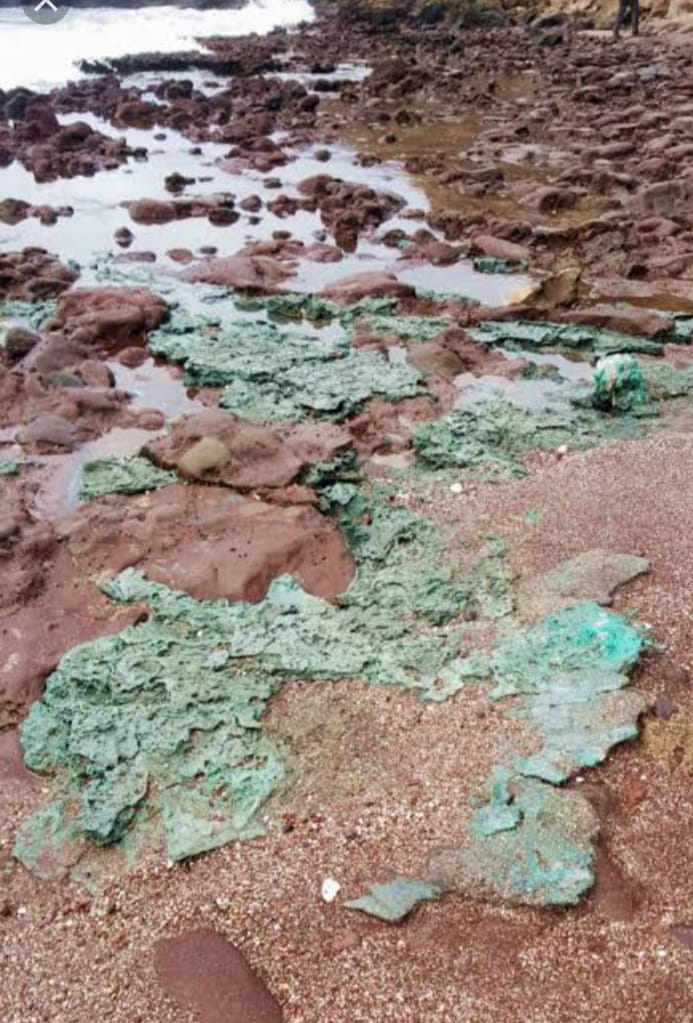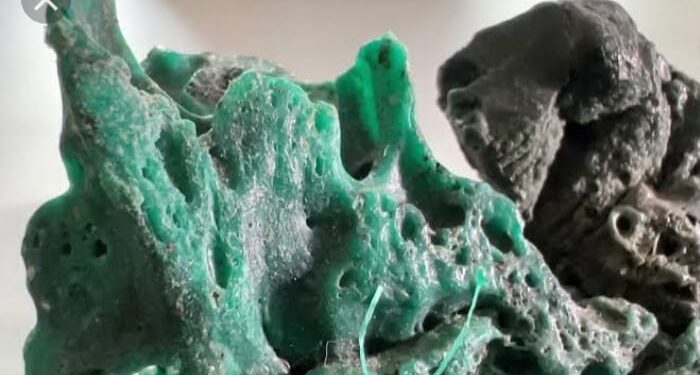Plastic Rock :-Brajil, 1100 km away is the volcanic island of Trindade Island, where a rock made of plastic debris is found. The geological feature is that it is the easternmost and most distant point of Brazil. This rock took three million years to form and there is still volcanic activity going on.
The height of this rock is 600m and depth is 6000m. There is no human activity here but there are local flora and their species including sea birds, sea creatures. It is a famous nesting ground for sea turtles. Where turtles lay their eggs and their species thrive. So finding plastic in this place is a dangerous situation for turtles. This place is fully protected.

It is also known for the tried patrol and the great frigate bird. Sharks, dolphins and corals are also found here. Finding plastic out there is a matter of concern for all these special creatures. Because in the future this can put the development of all the species in great danger.
How did Plastic Island come to be?
This area is a protected area where plastic has reached there even though there is no human activity. The cause of plastic pollution is fishermen coming in the vicinity of it.
Where plastic is separated from their broken nets by the waves, the micro plastics are heated by the heat and combine with the rock to form plastic boulders. Both of which are green in color. Hence it can be seen here how humans affect the biological cycle.
Bad effects of ocean pollution
The bad effect of sea pollution is also seen on the environment and on the organisms living in the water. We throw 12 million tones of garbage into the sea every year. We will see this type of island in the future as well.
Also, if this waste is not controlled, there will be a bad effect on fish, turtles and plants growing in the water. That’s why plastic has to be banned and recycled plastic has to be recycled so that we can create a better future for all of them.
ocean turtles can mistake floating plastic garbage for food. they can choke, sustain internal injury and die. tragically, research indicates that half of sea turtles worldwide have ingested plastic. new study find plastic pollution is so pervasive on many beaches that its affecting their reproduction.
the center for biological diversity is tacking this problem on multiple fronts. we have petitioned the U.S. environmental protection agency asking the government to regulate plastics as a pollutant under the clean water act and will keep pushing for plastic pollution to be treated as the hazardous waste that it is.



